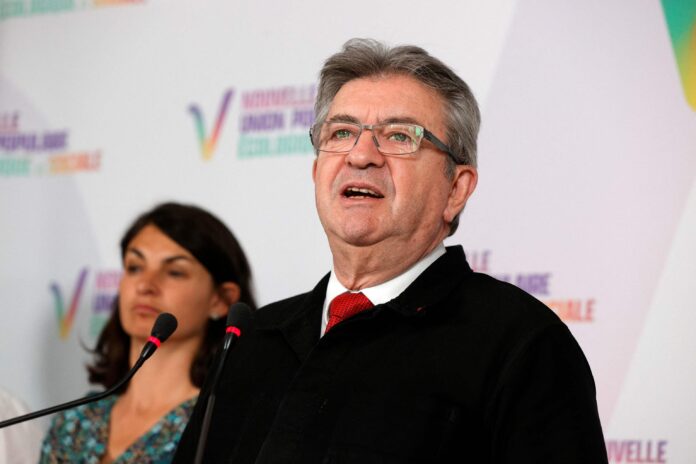Just two months after re-electing Emmanuel Macron as president, France is facing another uncertain date with the polls. It is not his rival at the time, the far-right Marine Le Pen, but the far-left leader, Jean-Luc Mélenchon, who threatens to complicate the centrist’s mandate in the event that the coalition he leads obtains a majority in the legislative elections, whose first round is held this Sunday.
The latest polls, four days before the vote, place the party with which Macron goes to these elections, Renaissance, and its allies with 28% support, just half a point above the coalition of the New People’s Union, Ecological and Social (Nupes), headed by Mélenchon, leader of the France Insumisa, who would obtain 27.5% of the votes.
The advance of the Mélenchon coalition worries the Macronist camp, especially because it would complicate governance. In the elections to the Assembly, majorities are forged that will later validate or hinder the president’s reforms. Marine Le Pen would obtain, according to this survey published by Le Monde, 20% of support.
The appointment with the polls to elect the deputies of the National Assembly is held two months after the presidential ones, within the so-called “French electoral spring”. Voting is also done in two rounds, just after, to prevent the sign of the Government from being different from that of Parliament, which makes governance difficult. This example of cohabitation occurred during the mandate of the conservative Jacques Chirac, with the socialist Lionel Jospin as prime minister.
Mélenchon has managed to unite the left in these elections, something unthinkable a few months ago and is even ahead of Marine Le Pen. Four days before the first appointment with the polls (the second electoral round is held on the 19th) the picture is as follows: Macron, who had promised a renewed mandate, is missing in this campaign, he formed the government late and some of his The ministers have already been splashed with controversy: the Solidarity minister is accused of rape and the head of the Interior has had to justify the chaotic security device deployed for the Champions League final. Added to this is the controversy of recent days over police action after the death in recent days of a young man at a police checkpoint.
This is the context in which the final stretch of this campaign takes place, which has resurrected the worst ghosts of France: insecurity, violence and conflict in the most emaciated neighborhoods of the country, especially in the Paris belt, the so-called banlieue. This is the case of Seine Saint-Denis, where the incidents occurred during the Champions League final and where, coincidentally, Macron was yesterday in an electoral act. Mélenchon has accused the police of abuse of power, including “killing”, as he went so far as to say on Twitter.
In the Elysée there is widespread concern about Mélenchon’s advance. He has already hinted that, if the left wins, Macron would have to appoint him prime minister. The president has made it clear that “no party can prevail over the president.” He “elects the prime minister and no party can impose a name on him,” Macron told the regional press.
A former Macronist minister warned of the risks of a Macron-Mélenchon coexistence: «We have had a social crisis (yellow vests), a health crisis (the pandemic) and a geopolitical crisis (war in Ukraine). Let’s not add an institutional crisis to a country that would cease to be governable.”
Conforms to The Trust Project criteria








